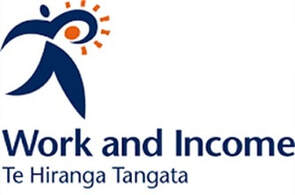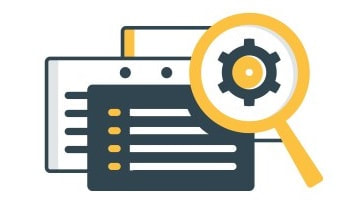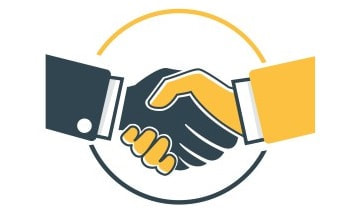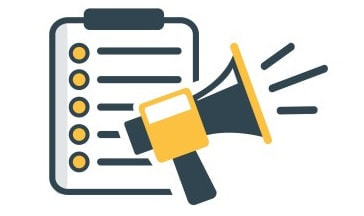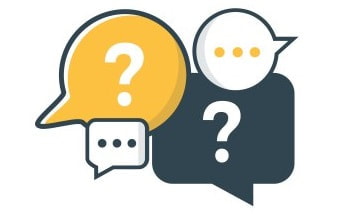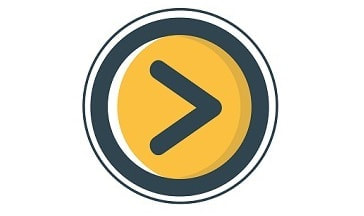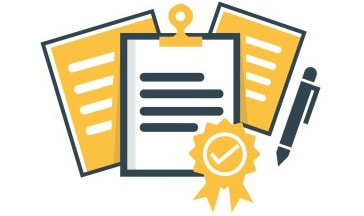Jobseeker Support Guide - The Definitive New Zealand Guide
Apply for an unemployment benefit with confidence using our comprehensive guide. We explain your eligibility, entitlements, obligations, and must-know tips.
Updated 22 July 2024
Important: For all payment rates, please see our dedicated Benefit Rates (Jobseeker Support) guide.
Summary
Important: JobSeeker Support: Information on Partner's Income
Whether people are single or a couple affects eligibility for benefits and the payment rate per Work & Income guidance. This Reddit post in 2023 gives an example of the issues. Navigating the JobSeeker Support application can be challenging, especially when understanding how your partner's income affects your eligibility. To help you save time and avoid frustration, here are some crucial points you need to know:
Temporarily sick and unable to work? Jobseeker Support is also available for people who would be working but who have a short-term medical condition that prevents them from working at the moment. This could include anything from waiting for an operation to experiencing anxiety or depression, or someone undergoing treatment for conditions like cancer and diabetes. Our Jobseeker Support Frequently Asked Questions explains the difference between Jobseeker Support and Supported Living Payment.
Our guide is comprehensive and designed to help you understand your eligibility, entitlements and obligations. We cover:
Know this first: Jobseeker Support is a relatively new name for several types of assistance you may have heard of before.
Important: For all payment rates, please see our dedicated Benefit Rates (Jobseeker Support) guide.
Summary
- Jobseeker Support is a type of main benefit available from Work and Income for people who would otherwise be working but who don’t have a full-time job at the moment. There are around 200,000 Jobseeker Support recipients per this 2022 research from Infometrics.
- This could include people who have been made redundant, finished study, recently returned from overseas or who have finished self-employment. Essentially, Jobseeker Support is for anyone who is now available for work.
- Know this first: You can only qualify for Jobseeker Support if you do not have a working partner. If your partner is working, you are not able to apply for a Jobseeker Support unless they earn under a specific amount.
Important: JobSeeker Support: Information on Partner's Income
Whether people are single or a couple affects eligibility for benefits and the payment rate per Work & Income guidance. This Reddit post in 2023 gives an example of the issues. Navigating the JobSeeker Support application can be challenging, especially when understanding how your partner's income affects your eligibility. To help you save time and avoid frustration, here are some crucial points you need to know:
- Eligibility Threshold: Generally, if your partner earns more than around $1,000 a week (gross), you are not eligible for JobSeeker Support.
- Accommodation Supplement: If your partner earns more than around $1,400 a week (gross), you are not eligible for the Accommodation Supplement.
- Important: Work & Income doesn't publish this threshold clearly, but our research team believes that around $1,000+ (Job Seeker) and $1,400+ (Accommodation Supplement) are accurate.
- Understanding these thresholds can save you from spending time on applications if your partner's income disqualifies you.
- Before starting the application, check your partner's income against these thresholds. If you are unsure about your eligibility, contact Work and Income directly to clarify before applying. BenefitMe has more details.
Temporarily sick and unable to work? Jobseeker Support is also available for people who would be working but who have a short-term medical condition that prevents them from working at the moment. This could include anything from waiting for an operation to experiencing anxiety or depression, or someone undergoing treatment for conditions like cancer and diabetes. Our Jobseeker Support Frequently Asked Questions explains the difference between Jobseeker Support and Supported Living Payment.
Our guide is comprehensive and designed to help you understand your eligibility, entitlements and obligations. We cover:
- Jobseeker Support Benefit Summary and Eligibility
- Jobseeker Support Obligations
- 5 Must-Know Jobseeker Support Facts
- Jobseeker Support Frequently Asked Questions
- Jobseeker Support Application Process
- Tips for approaching Work and Income to apply for Jobseeker Support
Know this first: Jobseeker Support is a relatively new name for several types of assistance you may have heard of before.
- Terms like Unemployment Benefit, Sickness Benefit and the DPB (Domestic Purposes Benefit) were phased out in 2013. Jobseeker Support was introduced to reflect the work-focused nature of the assistance better.
- It is one benefit that replaces all of these, with different requirements and obligations depending on your circumstances.
- New Zealand has a three-level benefit system, with main benefits like Jobseeker Support forming the foundation of the financial assistance you are entitled to. Extra help like Accommodation Supplement, Disability Allowance and Temporary Additional Support are paid on top of benefits like Jobseeker Support to help with specific extra costs.
Jobseeker Support Benefit Summary
- Jobseeker Support is a weekly payment. It's paid (like a job) a week in arrears. This means you usually have to wait at least a week to get a payment, but you also receive a payment after you re-start work to help you transition.
- The amount you receive is based on your age, if you have a partner and if you have children. Benefit rates are reviewed each year by the Government, and there is usually a small adjustment on 1 April to account for changes in the cost of living.
- Work and Income publishes the rates on their website here - our dedicated guide lists all the payment entitlements which vary depending on your circumstances.
- Benefits are paid directly into your bank account on the same day each week, either Tuesday, Wednesday or Thursday.
- Be aware that while these rates might seem low, they are just the beginning of your benefit entitlement. You may also qualify for extra help like an Accommodation Supplement, Disability Allowance and Temporary Additional Support depending on your specific circumstances.
Jobseeker Support Eligibility
There are three main eligibility requirements for Jobseeker Support, which we outline in detail:
1. You are looking for work and willing to accept suitable jobs
2. You are a New Zealand citizen or permanent resident who normally lives in New Zealand
3. You don’t have income that reduces your entitlement each week
Be aware:
1. You are looking for work and willing to accept suitable jobs
- This means that you are available to accept up to 30 hours of work per week.
- The definition of "suitable" is a bit vague and something that trips people up out of fear they’ll be sent to work as a labourer. While that’s technically possible, generally Work and Income interpret suitable work as being “work you are capable of doing”.
- In reality, Work and Income want people to find a job they’ll stay in so are fairly pragmatic.
- Pay rate doesn’t really come into it either - if you were on $100,000 and are offered a job on $50,000, Work and Income will expect you to accept on the basis that it's better than the benefit.
- Don’t let this put you off applying though - this obligation isn’t widely enforced for people who are proactively looking for work and (usually) only comes up if you turn down interviews or work that Work and Income refer you to.
2. You are a New Zealand citizen or permanent resident who normally lives in New Zealand
- If you think this requirement will rule you out then apply anyway - there are several hardship provisions and “emergency” benefits that Work and Income can grant to people who don’t qualify for Job Seeker due to not having residency grounds.
- Coming back from an OE and can't find a job? You are eligible - it's sufficient to intend to live in New Zealand for the foreseeable future to meet the "normally" requirement.
3. You don’t have income that reduces your entitlement each week
- Most main benefits are subject to an income test. While most people think of income as coming from a job, it can also come from a business, investments, rent payments or sometimes even gifts.
- Broadly, if you regularly receive money and use it to buy things that people typically buy with money earned in a job - Work and Income may consider it income.
Be aware:
- If you have a source of income other than a job, it might make your application a bit more complex as Work and Income will need to investigate how much to change against your benefit entitlement.
- Generally, you can't run a business and also receive a benefit (because you have to be available for any work, not just work in your business), but you can work and earn part-time income.
- If in doubt, it's always best to apply anyway. The worst that can happen is the application is declined.
Jobseeker Support Obligations
Most support from Work and Income comes with obligations. Common across all types of assistance is to let Work and income know about any changes in your situation. Some examples include:
This isn’t an exhaustive list, and it’s a good idea to read the obligations section of your Work and Income application carefully. As a general rule, if Work and Income asked about something specific when you applied for a benefit, you need to tell them if there's a change to what they asked about.
For Jobseeker Support, there are job search specific obligations too. These can include:
Work and Income and Jobseeker Support in a Nutshell
- You move house, or your housing costs change
- You start employment or earn income
- You start a new relationship, or your current relationship ends
- You travel overseas
This isn’t an exhaustive list, and it’s a good idea to read the obligations section of your Work and Income application carefully. As a general rule, if Work and Income asked about something specific when you applied for a benefit, you need to tell them if there's a change to what they asked about.
For Jobseeker Support, there are job search specific obligations too. These can include:
- Finding or preparing for work
- Taking part in workshops and assessments
- Attending seminars at Work and Income or with their contracted providers
Work and Income and Jobseeker Support in a Nutshell
- Essentially Work and Income want you to find work, and they want you to take part in activities that they think will help.
- It’s a good idea to go with the flow and attend the things you are asked to attend. You never know what you may learn or what connections you may make.
- If you feel strongly that you shouldn’t attend, make an appointment to see a Case Manager and talk it through. You are supposed to agree activities with Work and Income that are specific to you, so they’ll react positively to hearing an alternative proposal from you about how you are going to ramp up your job search.
What if I’m unwell and can’t work at the moment?
All of the above may make it seem odd that people with a health condition that prevents them from working would receive Jobseeker Support, but the focus of Jobseeker Support is to prepare people for work if that’s currently not an option.
If you can’t currently work due to a health condition, your doctor will need to complete a medical certificate for Work and Income which confirms this. The doctor will need to specify the likely duration of the condition and what (if any) preparation activities or part-time work you might be able to undertake.
You must talk to your doctor about what they write on your medical certificate because what Work and Income expects from you is guided by your doctor’s suggestions.
Generally, the first medical certificate you provide is valid for one month. After that, your doctor can complete them up to every three months (and you can get help with the cost of the doctor's appointment by applying for Disability Allowance). Work and Income will sometimes talk to their own medical experts for advice, and those experts might contact your doctor (all with your permission). They aren’t providing a second opinion or overruling your doctor, but they are hoping to understand your condition a bit more and how Work and Income might be able to help.
If you have a serious medical condition likely to last for more than two years, or that permanently stops you from working, your doctor might suggest applying for the Supported Living Payment. This benefit doesn’t include any sort of job search obligations for the person who applies and pays a slightly higher rate.
If you can’t currently work due to a health condition, your doctor will need to complete a medical certificate for Work and Income which confirms this. The doctor will need to specify the likely duration of the condition and what (if any) preparation activities or part-time work you might be able to undertake.
You must talk to your doctor about what they write on your medical certificate because what Work and Income expects from you is guided by your doctor’s suggestions.
Generally, the first medical certificate you provide is valid for one month. After that, your doctor can complete them up to every three months (and you can get help with the cost of the doctor's appointment by applying for Disability Allowance). Work and Income will sometimes talk to their own medical experts for advice, and those experts might contact your doctor (all with your permission). They aren’t providing a second opinion or overruling your doctor, but they are hoping to understand your condition a bit more and how Work and Income might be able to help.
If you have a serious medical condition likely to last for more than two years, or that permanently stops you from working, your doctor might suggest applying for the Supported Living Payment. This benefit doesn’t include any sort of job search obligations for the person who applies and pays a slightly higher rate.
5 Must-Know Jobseeker Support Facts
Call and apply as soon as possible after you finish workYour entitlement to Jobseeker Support is generally backdated to the earliest day possible. This will usually be either when you became eligible for assistance or the first time you contacted Work and Income, whichever happened first. As soon as you know you are going to be out of work, call Work and Income to apply or complete an online application.
|
You apply and are assessed as a coupleIf you are married or in a relationship when you apply for Jobseeker Support, your circumstances (and those of your partner) are considered together. This means your partner’s income (if they are working) is taken into account.
We believe this approach is outdated - many couples live together and have separate finances, so combining them for assessment seems restrictive. Right now, this is the way the law is written, and Work and Income have to follow it. What does "relationship" mean? It means "a relationship in the nature of marriage". If you aren’t married and don’t live with your partner, it's very likely that Work and Income wouldn’t consider you to be in a relationship for benefit entitlement purposes. On the other hand, if you live together, own some shared property or have children, they might consider you a couple. Every situation is different, and if you don't think it's clear-cut, it might be worth speaking with a case manager about your specifics if you are unsure. Be careful of people who know you It's generally not a good idea to pretend to "break up" so you can get a benefit. Landlords, jealous ex-partners and neighbours often dob people in, and deliberate benefit fraud is treated seriously and often prosecuted. Be aware: If you feel unsafe at home, or are in a violent relationship, there are specialist case managers who can help you and extra support available. You can disclose this discreetly to your case manager or leave a note for the Service Centre Manager. |
You can work while you receive a benefitYou can generally work up to 30 hours per week and still continue to receive Jobseeker Support. This means you can accept temporary, casual or part-time work without having to cancel your benefit and reapply.
Your benefit is assessed each week based on how much you’ve earned and can be reduced. It may seem a little unfair, but you’ll always end up better off. The first $100 gross you earn is exempt from any benefit reduction - many people choose to just earn the $100 and receive the full benefit payment. If you earn over the income cut-off to receive a benefit, payment will be stopped temporarily until your income drops again. You can report your income to Work and Income using MyMSD (their online portal) or by calling the contact centre. |
Don’t email your case manager documents - they may not be filed properlyGenerally speaking, you won’t always see the same case manager so unless they specifically ask you to, its best not to email them anything important as it is likely to get overlooked or lost.
The best ways to make contact are via the contact centre, dropping a note into reception or using myMSD. This is especially true if its something important like cancelling your benefit. This is a bit of a generalisation, but it means you don’t have delays or problems if your case manager is away on leave or is sick etc, or just has a busy day. Often you'll be asked to email in extra documents or a copy of your CV - this sort of thing is usually fine. But for anything major, you are best to give them a call. |
If you want to be left alone, be proactiveA common issue for people who have never received a benefit before is the need to attend appointments and seminars about finding work.
If you come to your appointments with a copy of your CV, a summary of all the jobs you’ve been applying for, and can talk enthusiastically about how you are sourcing job leads each week, you can probably avoid these seminars for several months. Helpful tips to keep in mind:
|
Jobseeker Support Frequently Asked Questions
Applying for Jobseeker Support is easy, but you're likely to have questions. Our FAQs walk you through the most common concerns.
How much can I earn and still receive Jobseeker Support?
The amount varies depending on how much you receive. The maximum (or cut off) is updated each year and published on Work and Income’s website. You can earn $100 per week before tax before there is any reduction in benefit payment, but you still need to declare it.
How do I record my income?
The easiest way to record your income each week is by using MSD’s online portal, myMSD. If that doesn’t work, you can call the contact centre, or drop into your nearest office and let them know at reception. They’ll ask you to complete a short statement and provide some ID.
When should I cancel my Jobseeker Support benefit?
You should let Work and Income know as soon as you start full-time work so you don’t get overpaid. You can suspend your benefit for a few weeks (or if you have a trial period) just in case it doesn’t work out.
When you start work, it's a good idea to ask Work and Income to assess to see if you still qualify for things like Accommodation Supplement or the Disability Allowance. You can continue to receive these while you work. If you owe any money (due to over-payments or advance payments of benefit) when you cancel, Work and Income will ask you to work out a repayment plan. Generally, an automatic payment is acceptable to sort this out.
When you start work, it's a good idea to ask Work and Income to assess to see if you still qualify for things like Accommodation Supplement or the Disability Allowance. You can continue to receive these while you work. If you owe any money (due to over-payments or advance payments of benefit) when you cancel, Work and Income will ask you to work out a repayment plan. Generally, an automatic payment is acceptable to sort this out.
I need some new clothing to start work - can I get help with that?
Yes, it's called a Transition to Work Grant. You can get help with clothing, transport costs for the first couple of weeks, or essential tools and equipment you need to get started. You can also get help if you’ll be moving from a weekly benefit payment to a monthly salary.
To apply, you’ll need some proof of the job (e.g., a contract) and some proof of the equipment you need. A good employer will provide that for you but otherwise you can ask. You can find out more on the Work and Income website.
To apply, you’ll need some proof of the job (e.g., a contract) and some proof of the equipment you need. A good employer will provide that for you but otherwise you can ask. You can find out more on the Work and Income website.
How do I get the Support Living Payment?
The Supported Living Payment is the main benefit for people who are permanently unable to work due to sickness. The illness needs to severely restrict your ability to work, and be likely to last at least two years. Generally, your doctor will recommend making an application, or Work and Income may invite you to apply based on information on your medical certificate.
Medical eligibility varies depending on your specific circumstances and will usually involve you visiting a doctor who works for MSD. They will assess all your medical information, speak with your regular GP, and make a recommendation to MSD.
Medical eligibility varies depending on your specific circumstances and will usually involve you visiting a doctor who works for MSD. They will assess all your medical information, speak with your regular GP, and make a recommendation to MSD.
Can Work and Income find out if I work and don’t tell them?
Yes. Work and Income regularly share data with IRD and very quickly pick up people who are both receiving a benefit and are working. The best thing to do is to report everything as it happens, and try and stay up to date.
If Work and Income find you haven’t declared some part-time earnings the worst that is likely to happen is you’ll have to repay some of your benefit already received. This is usually via a small deduction from your ongoing payments.
Work and Income do prosecute people who deliberately defraud them, so if you keep doing it, they may take further action.
If Work and Income find you haven’t declared some part-time earnings the worst that is likely to happen is you’ll have to repay some of your benefit already received. This is usually via a small deduction from your ongoing payments.
Work and Income do prosecute people who deliberately defraud them, so if you keep doing it, they may take further action.
What happens if I don't do what I'm asked to do?
If Work and Income think you might not be meeting your obligations to find work, they start a process called a Work Test. Essentially they invite you to make contact and explain why you didn't fulfil an obligation they expected you to. The most important thing you can do is respond. You can almost always avoid problems by getting in touch early and explaining what happened.
If you don't have a good reason or Work and Income don't like it and threaten to sanction your payments, ask for a Re-compliance Activity. This is a job search focused task which, upon completion, means your benefit payments continue. Work and Income have to offer one, and it's up to them to suggest what you do. Typically it's to attend an appointment or apply for a job and isn't onerous.
You can ask to Review a Work Test decision too, but its often this won't be needed if you've followed the Re-compliance Activity.
If you don't have a good reason or Work and Income don't like it and threaten to sanction your payments, ask for a Re-compliance Activity. This is a job search focused task which, upon completion, means your benefit payments continue. Work and Income have to offer one, and it's up to them to suggest what you do. Typically it's to attend an appointment or apply for a job and isn't onerous.
You can ask to Review a Work Test decision too, but its often this won't be needed if you've followed the Re-compliance Activity.
Jobseeker Support Application Process
- To apply for Jobseeker Support, head to the Work and Income website and choose “Apply Online”. This will take you through an online form, guiding you through questions to determine what you may be eligible for.
- Once this is complete, you’ll generally be asked to come in for an appointment and to bring your supporting documents with you. These include:
- Government-issued identification (for yourself, your children and your partner)
- Proof from the bank of your bank account number (e.g. a bank statement)
- Proof of your past income. If you don't have payslips etc., they may ask your employer to complete a form on your behalf - but only with your permission
- Proof of your accommodation costs (to assess Accommodation Supplement entitlements) and proof of any other costs
Expert Tip: Waiting for documents is often the cause of delays in applying for a benefit. Try and bring everything they ask for rather than drop it in later. The more you have prepared, the faster the processing and the quicker you'll receive your money.
Additional entitlements: You can apply for extras like Disability Allowance and other payments once your first application has been processed and while it won’t be backdated, getting the paperwork together won't delay money coming in.
Next Steps: Payments
- Once your benefit has been granted there is generally a short waiting period before payments start. The start date is determined by any period of holiday pay you received when you finished work and a stand-down period.
- Once your benefit starts, you’ll be paid a week late. For example, if your Jobseeker support starts from a Monday you’ll generally get a payment the following week. Payments are then made on the same day each week.
COVID-19 Policy: Work and Income usually ask everyone to come to seminars and talk about job search before applying for a benefit. This has been suspended during COVID-19 but may be reinstated.
Expert Tip: Keep an eye on the start date and budget your money accordingly. You may only receive a part-payment the first week.
Tips for approaching Work and Income to apply for Jobseeker Support
Our list below contains essential must-know action points to make dealing with Work and Income as smooth as possible. For more details, our Navigating Work and Income guide delivers useful tips.
Do you have tips you would like to share? Contact our research team.
- Bring your CV and be ready to talk about your job search activities at every appointment. It helps show you are proactive.
- Meet your local Work Broker. Your local Work and Income office may have a list of available jobs, a list of reputable recruitment agencies or a Work Broker on site. A Work Broker is a specialist who works with employers to find job vacancies - it's super helpful to proactively introduce yourself and pass along your CV.
- Always bring some ID (Passport, Birth Certificate or a Driver’s License) to appointments at Work and Income.
- If you have a complex situation, it's sometimes helpful to write it down before you come in and give your case manager the information in writing. This helps you explain it, and helps the case manager document the decisions they have made
- You don’t have to receive a benefit to receive help with job search. You can visit the office and ask to speak with a Work Broker any time.
- You can ask for a Review of Decision for almost any decision Work and Income makes. You can ask for a Review of Decision form or just write a short note describing the decision and leave it at reception. The decision is reconsidered by senior staff and the centre manager. If they agree with the original decision, it goes to a panel of three - a community representative (usually an advocate) and two senior staff from another service centre. Reviews of Decision are an excellent way to get mistakes corrected.
- Check your letterbox. Work and Income generally make contact by letter, so make sure you are checking the mail and that you open Work and Income letters.
- Know you can get support - if you struggle with official things, forms, or get stressed, you can bring a support person with you. You can also appoint an "Agent" to act on your behalf who can fill out forms or call Work and Income on your behalf.
- Advocates are also available to help with really complex cases or if you think you aren't getting a fair go. They'll talk through things with you then either contact the service centre manager or attend an appointment with you. Most service centres have a list of local advocates, or your local Citizen's Advice Bureau can usually help.
Do you have tips you would like to share? Contact our research team.

